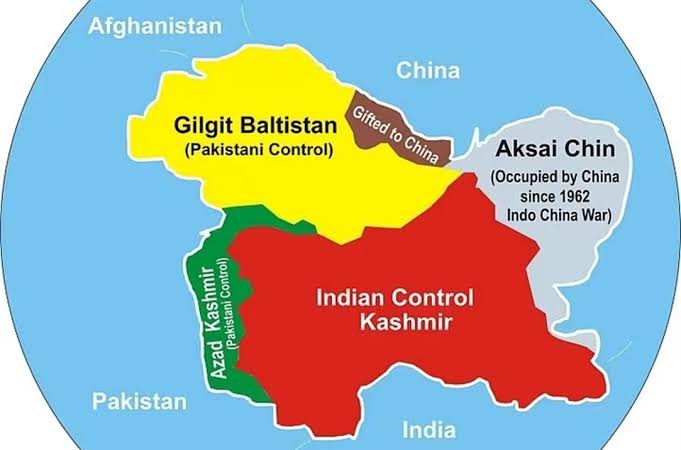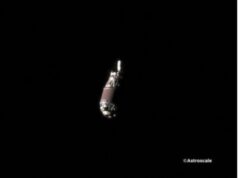PoK not part of Pakistan by its own Constitution

Gilgit, Baltistan and parts of Poonch & Kashmir Valley captured by Pakistan in 1947 are collectively called Pakistan Occupied Kashmir. It is not part of Pakistan but of India and India has declared its resolve to take it back at a suitable time, using force, if necessary.
Now even Arif Chaudhry, a prominent leader of the Joint Awami Action Committee’s Mirpur chapter, at a Press Conference asserted that PoK is not constitutionally part of Pakistan. Referring to Pakistan’s Constitution, Chaudhry mentioned, “According to Article 257 of the Pakistan Constitution, PoK is not a part of Pakistan. Its status was declared in a United Nations resolution as a disputed area. At that time, it was declared by Pakistan that 26 commodities would be provided to the people of PoK. Hence, Pakistan is bound to fulfil its part towards our people, as it has signed an agreement at the UN.”
The Occupation Government of Pakistan in the past had promised to resolve people’s issues within 45 days, but now over 6 months have passed without any resolution. In 2011, Arif had taken a case to the Supreme Court of Pakistan, highlighting lack of compensation and re-allocation of land and houses under the Land Acquisition Act, which were promised to PoK people during the construction of the Mangla Dam. After a year, the case was dismissed.
Arif held the press conference at the Mirpur Press Club on Tuesday, addressing the Pakistani Occupation Administration’s disregard for the people of Pakistan-occupied Kashmir (POK).
Chaudhry emphasised the lack of fulfilment of promised rights and resources for PoK residents, highlighting Mirpur’s repeated loot by the Subjects of Pakistan and their benefit despite ongoing neglect and suppression.
Chaudhary stated, “We, the people of Mirpur, are civilised but have been suppressed, looted, forcefully dislocated and suppressed, and the same destruction continues even today.”
He criticised the severe load shedding in PoK, despite its significant contribution to Pakistan’s electricity production, calling for fair treatment in accordance with Pakistan’s constitution.
While addressing the significant issue of severe load shedding in PoK, Chaudhry stated, “PoK is rich in land resources, especially water, which has been used to generate electricity for the entire Pakistan. Mirpur sacrificed a significant part of the city to accommodate the dam responsible for generating this electricity.”
He continued, “The Pakistani constitution, in Articles 157 and 161, stipulates that the majority benefit of resources generated from any land will be given to the locals. However, our rivers produce cheap electricity at merely PKR 2.59 per unit, yet we are charged around PKR 80 per unit. This discrepancy is neither constitutional nor humanitarian.”
“Only a small section, merely 33 per cent of PoK’s total population, is paying the electricity charges for the entire region. Neither the judiciary, the administrative officials, the chief secretary, nor the 5000 permanent employees of the PoK government pay any electricity bills. Hence, we demand compensation for all the resources that Pakistan has been taking from us,” Chaudhry added.
He condemned the government’s negligence regarding the issues of PoK and mentioned the failure to address concerns raised in the Supreme Court of Pakistan.
Arif Chaudhry concluded, “Our hands are now forced to bring these issues to the UN, citing articles of the Pakistani constitution. This will be shameful for Pakistan on the international stage. We have sacrificed for the establishment and prosperity of Pakistan, and we demand that the government take our concerns seriously and address them.”



